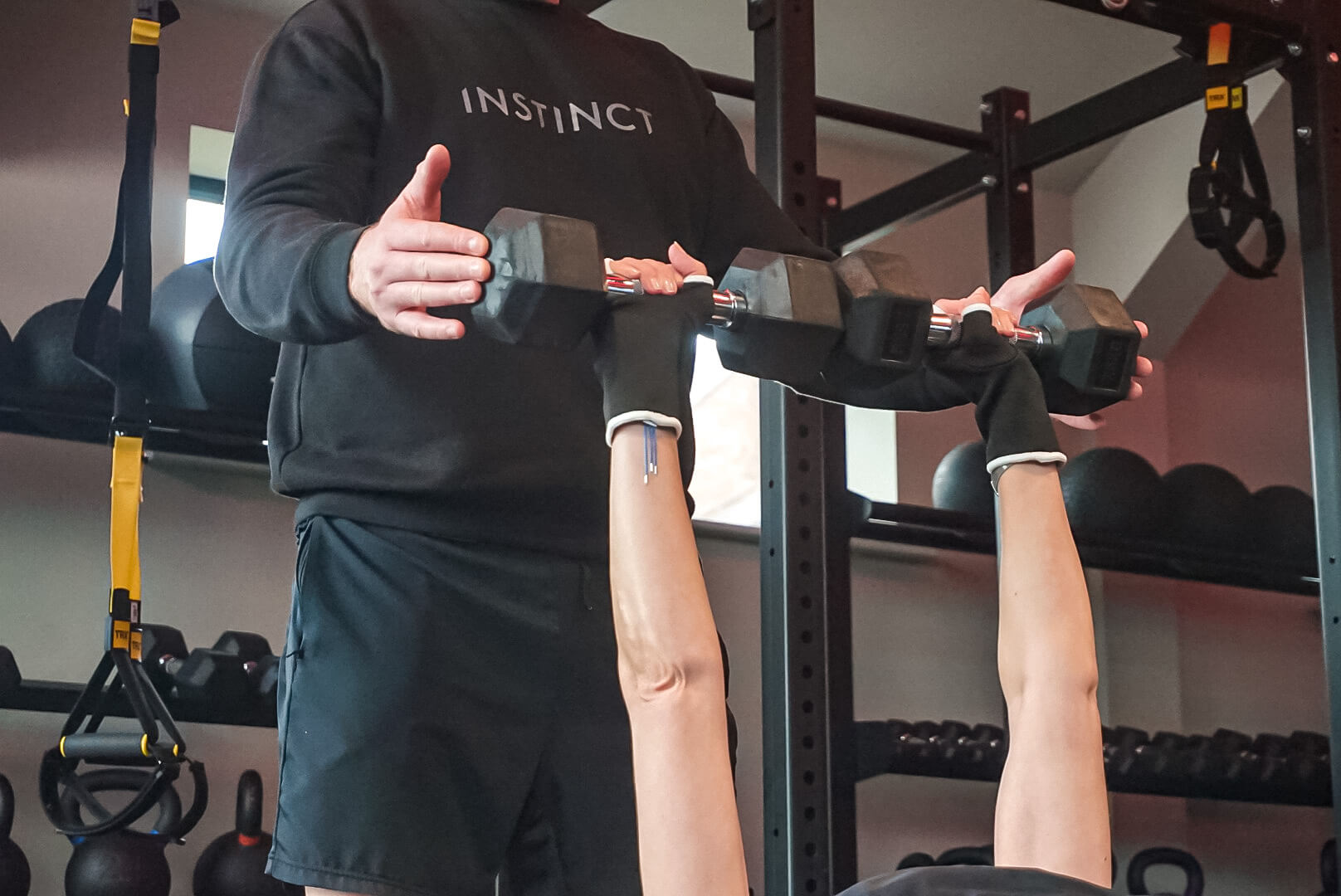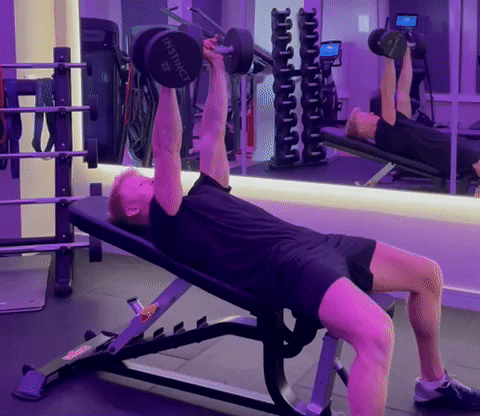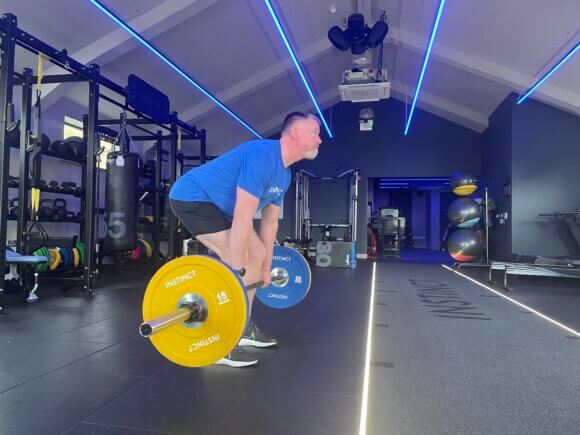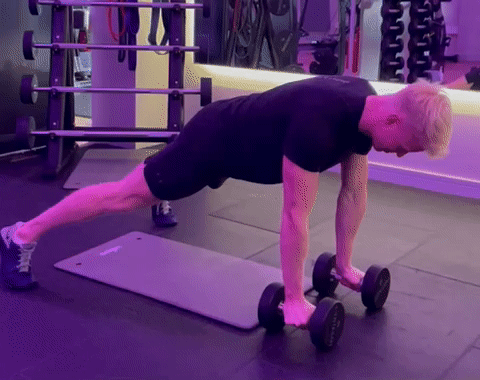

Weight training helps increase strength and balance, reduce muscle dystrophy (weakness and loss of muscle mass) and delays other effects of ageing. It is never too late to start!
Training in this way twice a week can have a huge effect on physical health, mental health and social health and will benefit your future self greatly by reducing muscle wastage and preparing you for all functional movements.
As the human body gets older, the increase in the risk of falling increases. This is due to reduced balance and a loss of muscle mass, known as sarcopenia, that occurs with age. This is often accelerated in people who are more sedentary.
Sarcopenia influences the quality of life and the likelihood of worsening health. Reduced strength and muscular endurance can make being physically active more difficult. Daily tasks can become harder with age such as walking up the stairs or lifting objects as these acts require muscle strength, power and balance.
Resistance training combats these effects by increasing strength, muscle mass and muscle quality. The results of resistance training helps to reduce the difficulty in performing daily tasks.

Regular exercise can help boost your mood and have a profoundly positive impact on mental health including depression, anxiety, ADHD, menopause and more. It also relieves stress, improves memory, helps you sleep better, and boosts your overall mood.
After regularly strength training, you will often achieve an improved sense of wellbeing, due to improved weight management and body image, as well as feeling stronger and more confident in your own ability to perform tasks. This has a great effect in boosting self-esteem and helps you remain independent as you age.
Training can also prevent or control chronic conditions such as diabetes, heart disease, arthritis, back pain, depression and obesity. These conditions massively affect people’s mental state, so avoiding them or controlling them hugely improves your mental health.
Exercising can also be a great way of socialising. Meeting new people and making friends at exercise classes and gyms can be great for your social health as well as providing extra motivation to continue with your training.

Participating in resistance training doesn’t have to mean joining a gym and lifting weights. There are many ways to train effectively that suit each individual’s lifestyle and help you enjoy training.
Exercise classes are a great way to exercise in an enjoyable environment and under the supervision of a qualified trainer. At Instinct Gym and Wellbeing, Tarporley, classes are available for people of all levels of fitness helping advise each individual on the correct way of training as well as offering coaching packages including health and nutritional support.
Exercise classes are also a great social event, whether you join the class with friends or meet people in the class, training with other people is great for motivation and enjoyment.
Contrary to what most people think, strength training doesn’t only have to be done in a gym. Many strengthening exercises can be done with minimal equipment and minimal space, so not having time to go to the gym is no longer an excuse. Being able to set aside 30 minutes a day incorporating strength training at home is so beneficial to your strength and all-around health.
Therefore, regardless of age, previous training experiences or lifestyle, strength training can be, and should be, a part of everyone’s lives to help with quality of life and reducing ageing risks.

Try our METHOD class which incorporates strength training in a HIIT style workout, or give a semi-private or 1-2-1 personal training session a go to receive tailored strength training advice and a plan to suit you.
If you would like to try a strength workout in the gym, click here to follow Chris’ full body burn workout.
Get started with Instinct in Tarporley.
By continuing to use the site, you agree to the use of cookies. more information
The cookie settings on this website are set to "allow cookies" to give you the best browsing experience possible. If you continue to use this website without changing your cookie settings or you click "Accept" below then you are consenting to this.